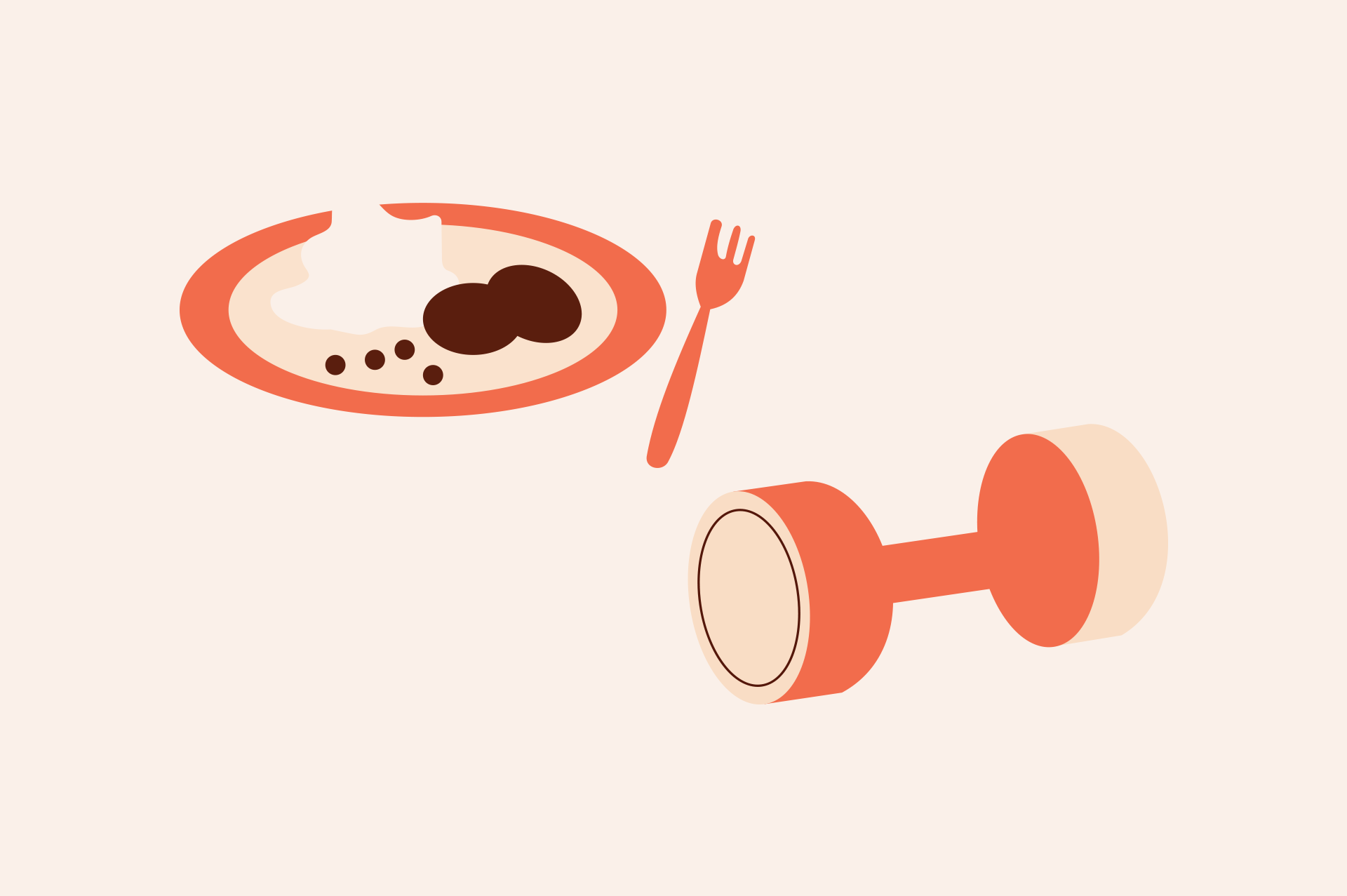Food and exercise
Regular exercise and a well-balanced diet are important – both for physical and mental health. Exercising and eating regularly are necessary to cope with the demands of student life.

Food and meals are a part of life and a requirement for feeling good and being able to cope with studies and other things that are important to you. Eating a varied diet and spacing meals evenly throughout the day gives you a routine for your eating habits, thus keeping your blood sugar and mood at an even level. Make sure to take breaks during your study day and fill up with energy!
Why do you need to eat for well-being?
Your need for energy and nutrients varies with age, gender, activity and health. There is no single food that contains all the nutrients you need. You need to eat a variety of foods.
Aim to eat breakfast, lunch and dinner. Preferably have a couple of snack breaks too. Try to compose meals that include:
- Fruit and vegetables
- Healthy fats
- Carbohydrates, preferably fibre-rich
- Proteins
On the Swedish Food Agency website, livsmedelsverket.se, you will find tips and advice on what constitutes a good and nutritious diet.
Your brain needs food to function
Just as you must eat well and get sufficient exercise if you are to perform well, your brain needs energy to function. However, even though this is obvious to many people, we tend to forget it when under stress to complete an assignment on time. Remember to eat properly – even when faced with a deadline. It will help you perform better!
When you don’t have the time or energy
In stressful times or when your life or health isn’t at its best, it can be difficult to manage your eating habits in a good way, even though that’s when it’s really most important. Both what and how much we eat can change when we don’t feel good, which in turn can affect our energy and ability to concentrate. To prevent this, it’s good to create food routines that you can stick to even in periods when life feels extra demanding. This may involve, for example, cooking a big batch of food and storing portions in the freezer or having food that can easily be heated.
Why should you get moving?
Research shows that all forms of movement have positive effects on physical and mental health. You will be less stressed and sleep better, have better concentration and be able to make decisions more easily. In addition, your creativity and memory are enhanced by as simple an activity as walking. It has demonstrable effects on depression, how we deal with stress and can be a way to manage and reduce anxiety.
A student’s daily life can involve a lot of sitting still, which in itself has negative effects on both the body and the brain. A half-hour walk has a great effect on counteracting the negative effects of a sedentary lifestyle. Taking short breaks and moving at regular intervals throughout the day is a big help.
Remember that the best kind of exercise is the one that gets done!
It doesn’t matter what shape you are in or how you get moving, a small change can have a big effect. A brisk walk, a bike ride, walking up the stairs of the highest building on campus, inline skating. Start with what you enjoy doing!
Some tips for getting started:
- Don’t sit still for too long! Take a few breaks to move during the day, even if you just stand up and stretch for a few minutes.
- Increase daily physical activities! Walk up the stairs instead of taking the lift, walk instead of taking an electric scooter, and so on.
- Move around outside. Daylight also helps improve your sleep.
- Do muscle strengthening activities (strength training) a few times a week. This may involve carrying heavy loads, lifting weights, or walking uphill.
- Adjust your exercise based on how you feel. If you are sick or exhausted, don’t exercise intensively. Instead, aim to get more sleep and take leisurely walks.
- Take it easy at first and increase your exercise gradually.
- Choose kinds of exercise that you find fun! Be kind to yourself and reward yourself when you have been active!
How much should I exercise?
A good guideline is that you should try to get moving about 30 minutes a day (or 15 minutes twice a day) in a way that will give you a slightly increased pulse and get you feeling warm. That’s when exercise has the best effect.